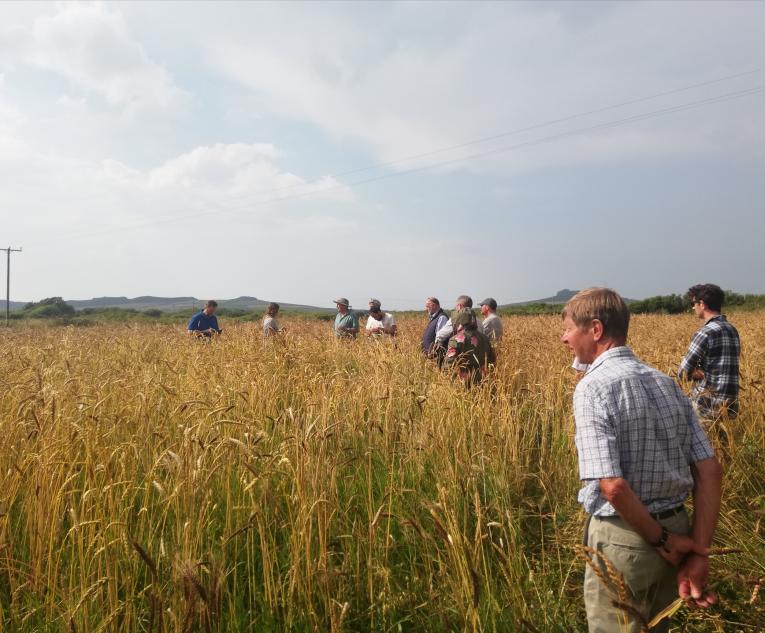
Long-lost wheat varieties can offer a good alternative to modern wheat on low input farms, but lodging can be a challenge, crop trials in Pembrokeshire have shown.
Only 9% of farmland in Wales is currently used for arable production and most of this is used for growing modern grains.
But farro grains including Emmer and Einkorn and other varieties that fall under the label of ancient and heritage grains are now being trialled in organic and minimum tillage farming systems with funding from the European Innovation Partnership (EIP) Wales.
These varieties have been pushed to the margins of agriculture for hundreds of years by higher yielding, more gluten-rich wheats.
However, a combination of increasing demand from artisan bakers and their suitability to organic and low input production systems, means there is an interest in reintroducing grain diversity to Welsh fields.
Results from the EIP’s spring and winter sown trials will help inform future production.
Farming Connect recently held an open day at one of the trial farms, Caerhys, near St Davids, to allow potential growers to see side-by-side comparisons of plots planted with the modern wheat, Mulika, and with ancient seed varieties.
Some have been undersown with clover and there is also intercropping with beans.
Henny Lowth of the Organic Research Centre, a researcher on the project, told attendees that the heritage spring wheat April Bearded had performed as well as Mulika for yield in the first year of the study and had outperformed it on protein content and specific weight in organic conditions.
As expected, Mulika outperformed April Bearded in the conventional system.
Where the ancient varieties did score significantly better was on weed suppression – April Bearded was the most suppressive, said Ms Lowth.
However, lodging with Einkorn and April Bearded was quite significant - the Lodging Index was highest for both under the conventional growing system.
Ms Lowth said Einkorn offered an opportunity for crop diversification but its overall performance and difficulties in accessing processing facilities such as de-hullers limit its potential.
Levels of the fungal disease Septoria were generally similar across the crops but there was a higher incidence of Yellow Rust in the April Bearded.
Seed rates were shown to have little effect on crop yield but there was a slight trend for higher yield from higher seed rates in organic growing conditions.
Ms Lowth said there were barriers to success from growing heritage varieties, notably a lack of the machinery and infrastructure needed for dehulling; seed quality can be an issue too.
“A lot of the seed is not commercially available therefore a lot needs to be swapped or home saved,’’
Ms Lowth explained.
Gerald Miles farms Caerhys and is excited about the future of heritage grains in crop rotations.
He hoped the trials would result in more of these crops being grown across Wales.
“Artisan bread is now really popular, I would like to see every consumer in Wales having the opportunity to eat this bread,’’
He said.
The trials will continue for a third year and once they conclude, the results will be disseminated to the farming industry.
Farming Connect, which is delivered by Menter a Busnes and Lantra, has received funding through the Welsh Government Rural Communities - Rural Development Programme 2014-2020, which is funded by the European Agricultural Fund for Rural Development and the Welsh Government.
